Navigating The New Year: A Comprehensive Guide To The January 2025 Calendar
Navigating the New Year: A Comprehensive Guide to the January 2025 Calendar
Navigating the New Year: A Comprehensive Guide to the January 2025 Calendar
Introduction
In this auspicious occasion, we are delighted to delve into the intriguing topic related to Navigating the New Year: A Comprehensive Guide to the January 2025 Calendar. Let’s weave interesting information and offer fresh perspectives to the readers.
Table of Content
Navigating the New Year: A Comprehensive Guide to the January 2025 Calendar
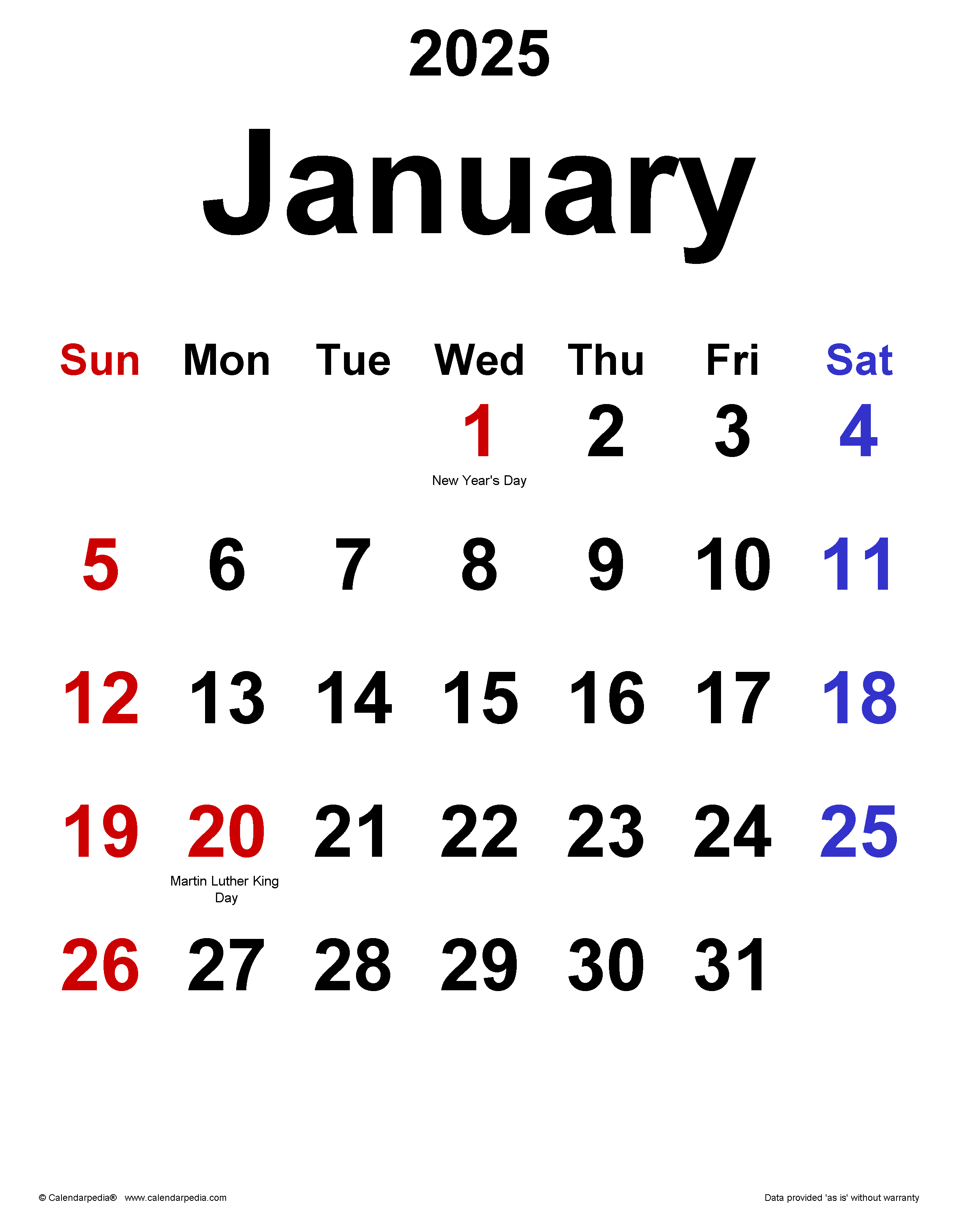
The start of a new year is often accompanied by a renewed sense of purpose and a desire to achieve goals. A key tool in this endeavor is the calendar, a vital instrument for organizing time, managing tasks, and staying on track. As we approach 2025, the January calendar becomes a critical foundation for the year ahead.
This article explores the significance of the January 2025 calendar, examining its various uses and providing a comprehensive guide to its effective utilization. We will delve into the benefits of using a calendar, explore different types of calendars available, and offer tips for maximizing its potential.
The Importance of Calendars in Modern Life
Calendars have been an integral part of human civilization for centuries, serving as a means to track time, plan events, and coordinate activities. In the modern world, their importance has only amplified. Calendars provide a structured framework for our daily lives, facilitating:
- Time Management: Calendars help individuals allocate time effectively, ensuring that important deadlines, appointments, and commitments are met.
- Organization: By visually representing the flow of time, calendars enable individuals to prioritize tasks, manage multiple responsibilities, and avoid scheduling conflicts.
- Goal Setting: Calendars serve as a visual reminder of goals and aspirations, allowing individuals to track progress and stay motivated.
- Collaboration: Shared calendars facilitate collaboration among teams, ensuring everyone is informed of upcoming events and deadlines.
- Stress Reduction: By providing a clear overview of commitments and deadlines, calendars can reduce stress associated with feeling overwhelmed or disorganized.
Types of Calendars: Finding the Right Fit
The world of calendars is diverse, offering a wide range of options to suit different needs and preferences. Here are some common types:
- Wall Calendars: These large, visually appealing calendars are ideal for displaying in homes, offices, or shared spaces. They offer a comprehensive view of the entire month and can be customized with personal photos or inspirational quotes.
- Desk Calendars: These compact calendars are perfect for individual use and can be placed on a desk or countertop. They typically feature a daily or weekly view, making them ideal for managing daily tasks and appointments.
- Digital Calendars: Online calendar applications, such as Google Calendar or Outlook Calendar, offer flexibility and accessibility. They allow users to create events, set reminders, share calendars, and access them from any device.
- Planner Calendars: These calendars combine a calendar with a planner, offering dedicated sections for notes, to-do lists, and goal tracking. They are particularly useful for individuals who need a more comprehensive approach to time management.
- Specialty Calendars: These calendars cater to specific interests or needs, such as academic calendars, financial calendars, or event calendars.
Utilizing the January 2025 Calendar: A Step-by-Step Guide
Effectively using the January 2025 calendar requires a strategic approach. Here’s a step-by-step guide to maximizing its potential:
- Start with a Clean Slate: Begin by clearing any existing entries from your calendar, creating a fresh start for the new year.
- Identify Key Dates: Mark down important dates for the year, such as birthdays, holidays, anniversaries, and deadlines.
- Schedule Recurring Events: Include regular commitments like work schedules, meetings, appointments, or classes.
- Prioritize Tasks: Allocate specific time slots for tasks based on their importance and urgency.
- Review and Adjust: Regularly review your calendar to ensure it reflects your current priorities and needs. Make adjustments as necessary to maintain efficiency and balance.
- Utilize Visual Aids: Consider using color coding, symbols, or other visual cues to differentiate between different types of events or tasks.
- Set Reminders: Use calendar features to set reminders for important events or tasks, ensuring you don’t miss anything.
- Embrace Flexibility: Understand that unforeseen circumstances may arise, and be prepared to adjust your schedule accordingly.
FAQs: Addressing Common Questions
Q: Where can I find a free printable January 2025 calendar?
A: Numerous websites offer free printable calendars for download. A simple search online will yield a variety of options, including calendars with different layouts, themes, and designs.
Q: What are the benefits of using a printable calendar over a digital calendar?
A: Printable calendars offer a tangible, physical representation of time, which can be helpful for some individuals. They also allow for personalization with handwritten notes, drawings, or stickers.
Q: How can I use a calendar to improve my productivity?
A: By clearly outlining your schedule and prioritizing tasks, a calendar can help you stay focused and avoid distractions. It can also provide a sense of accomplishment as you check off completed tasks.
Q: Can I use a calendar to track my goals?
A: Absolutely. Calendars can be used to set milestones for your goals, track progress, and stay motivated. You can allocate specific time slots for working towards your goals or use them as a visual reminder of your aspirations.
Tips for Effective Calendar Utilization
- Be Realistic: Don’t overschedule your calendar. Allow for buffer time between appointments and tasks to account for unexpected delays.
- Stay Organized: Maintain a consistent system for organizing your calendar, whether it’s color-coding, using specific categories, or creating separate calendars for different aspects of your life.
- Review Regularly: Take time each week or month to review your calendar and ensure it accurately reflects your current priorities.
- Adapt to Change: Be prepared to adjust your schedule as needed. Flexibility is key to effective time management.
- Embrace Technology: Explore the various features and functionalities of digital calendars to enhance your time management skills.
Conclusion
The January 2025 calendar is more than just a grid of dates. It is a powerful tool for organizing your life, achieving your goals, and navigating the year ahead with clarity and purpose. By embracing the benefits of calendar utilization, you can harness the power of time and create a more fulfilling and productive year. Remember, the journey of a thousand miles begins with a single step, and the January 2025 calendar is your guide to taking that first step towards a successful year.
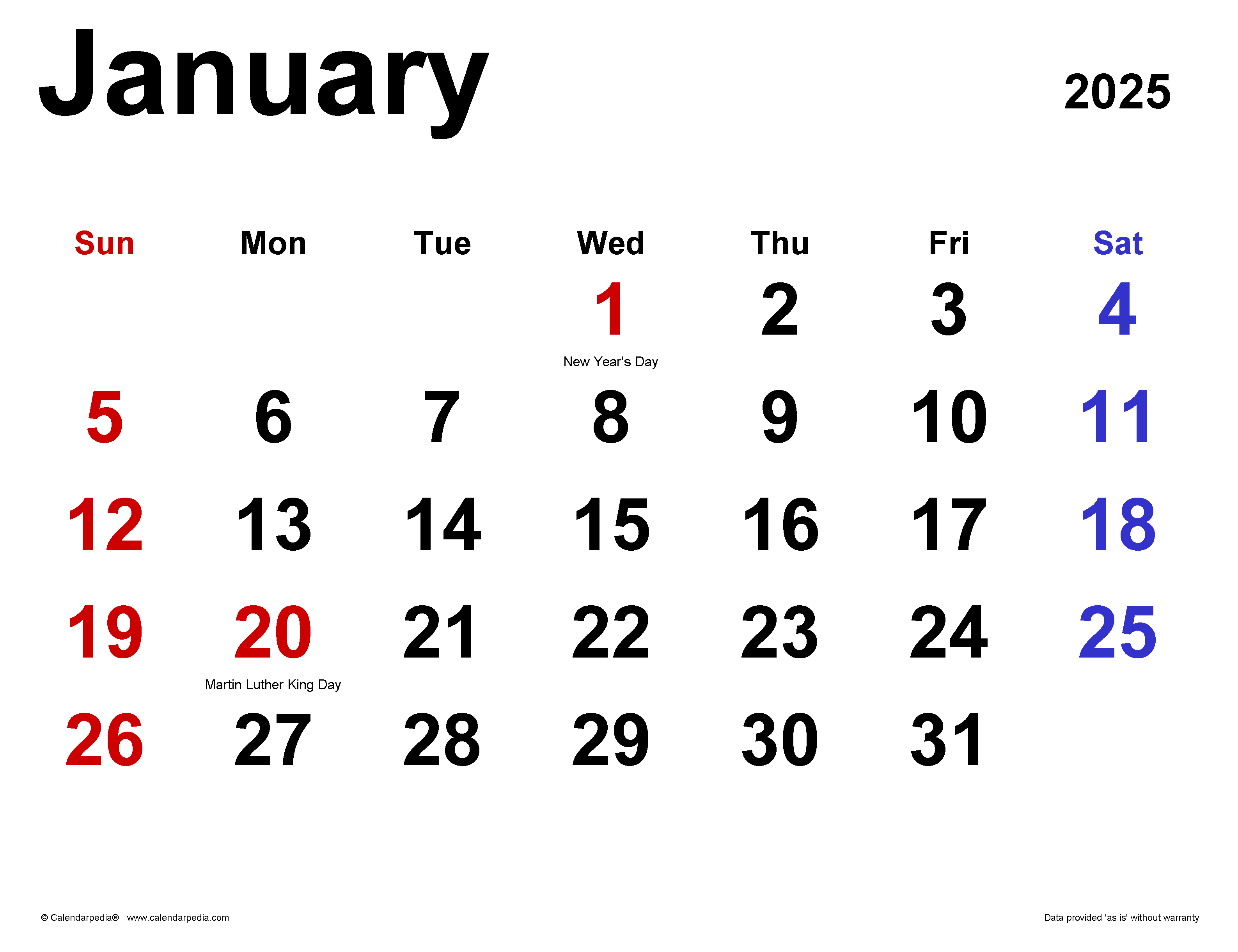
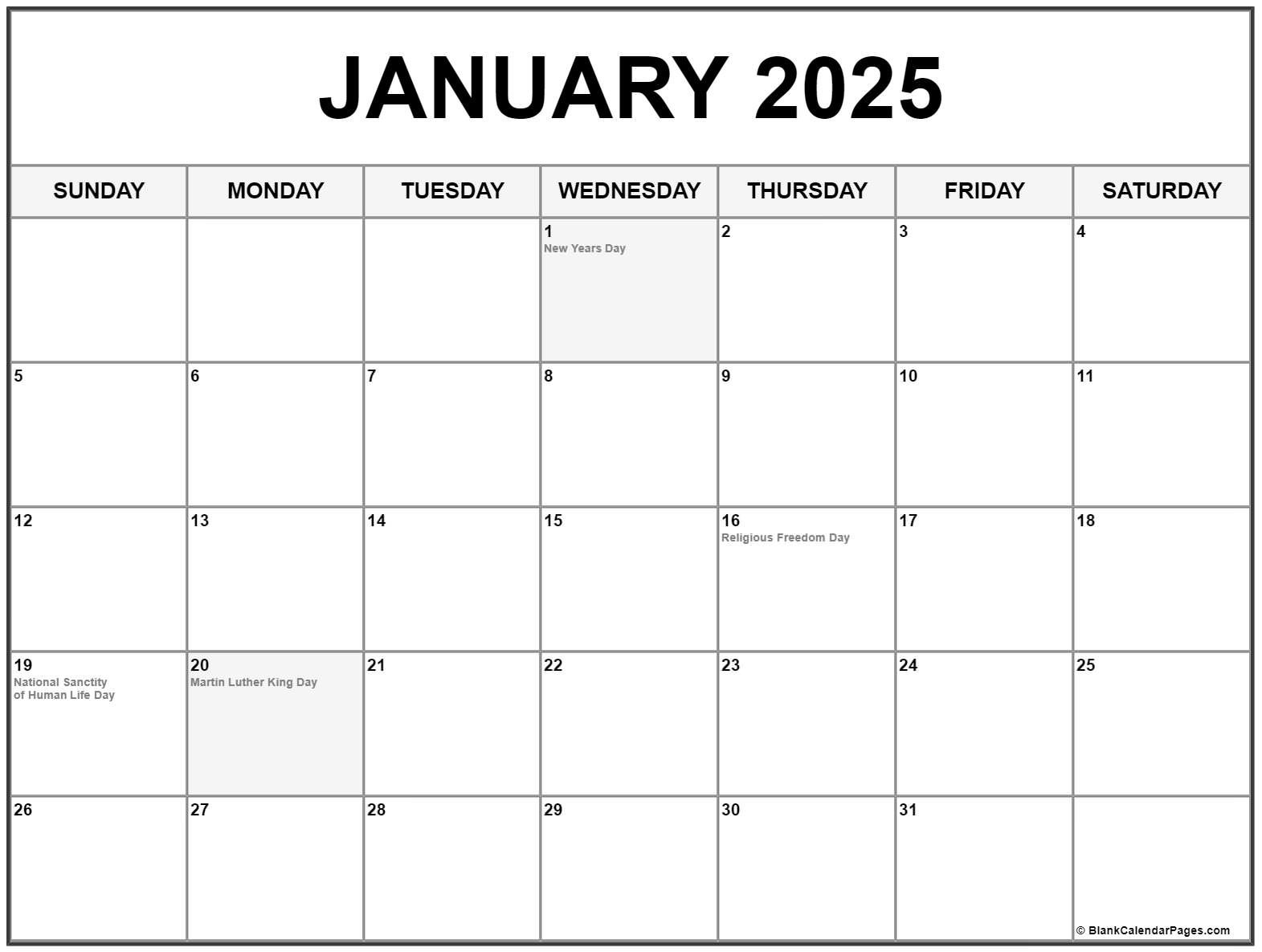
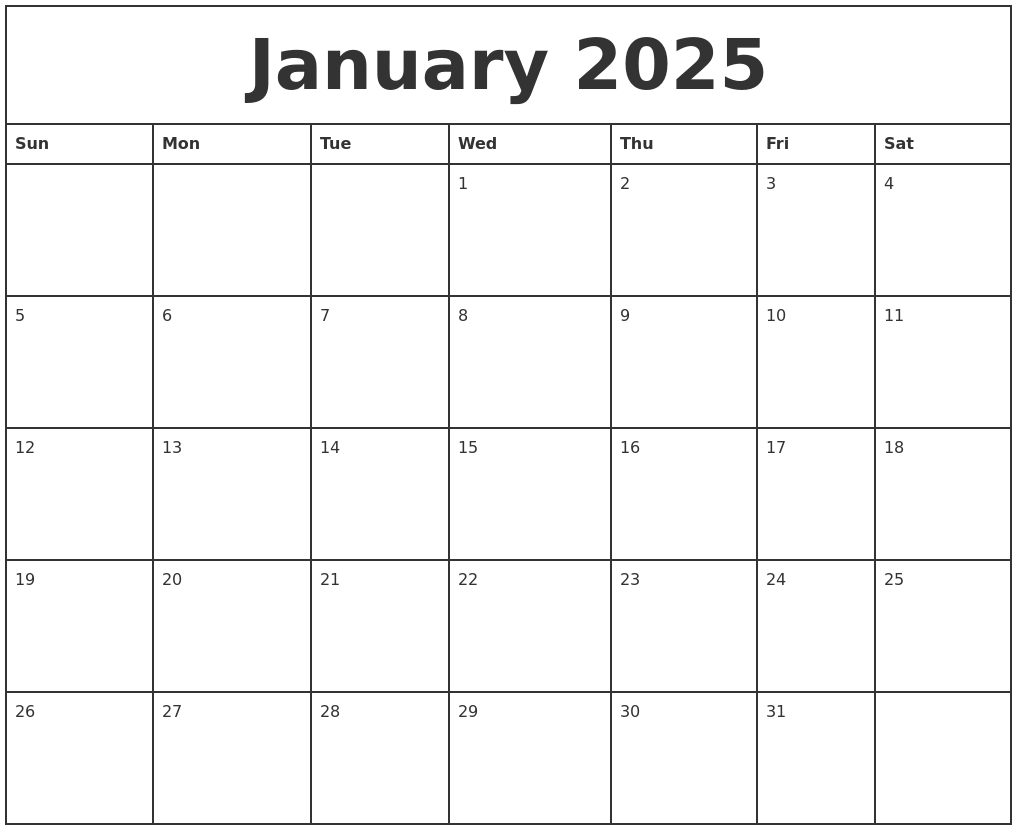
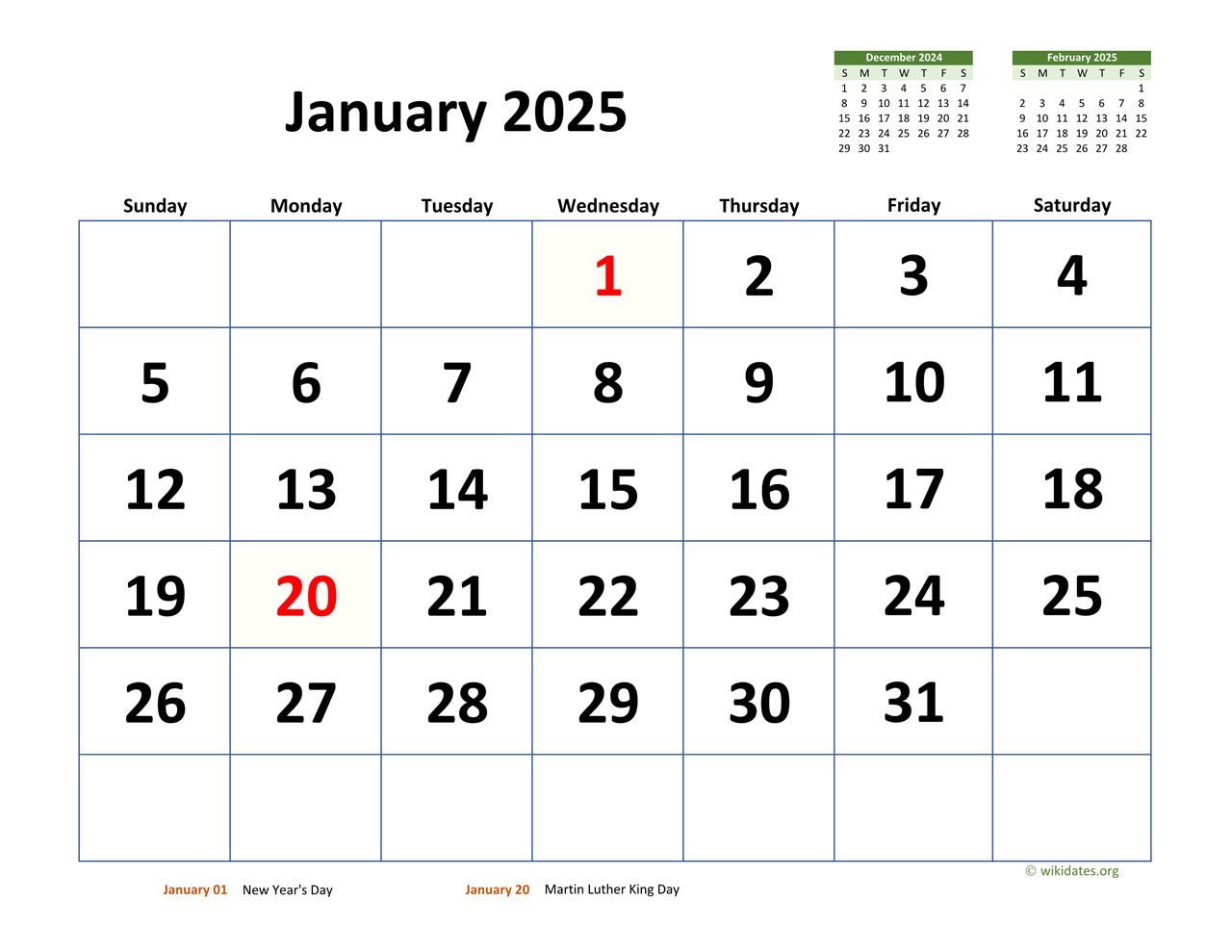



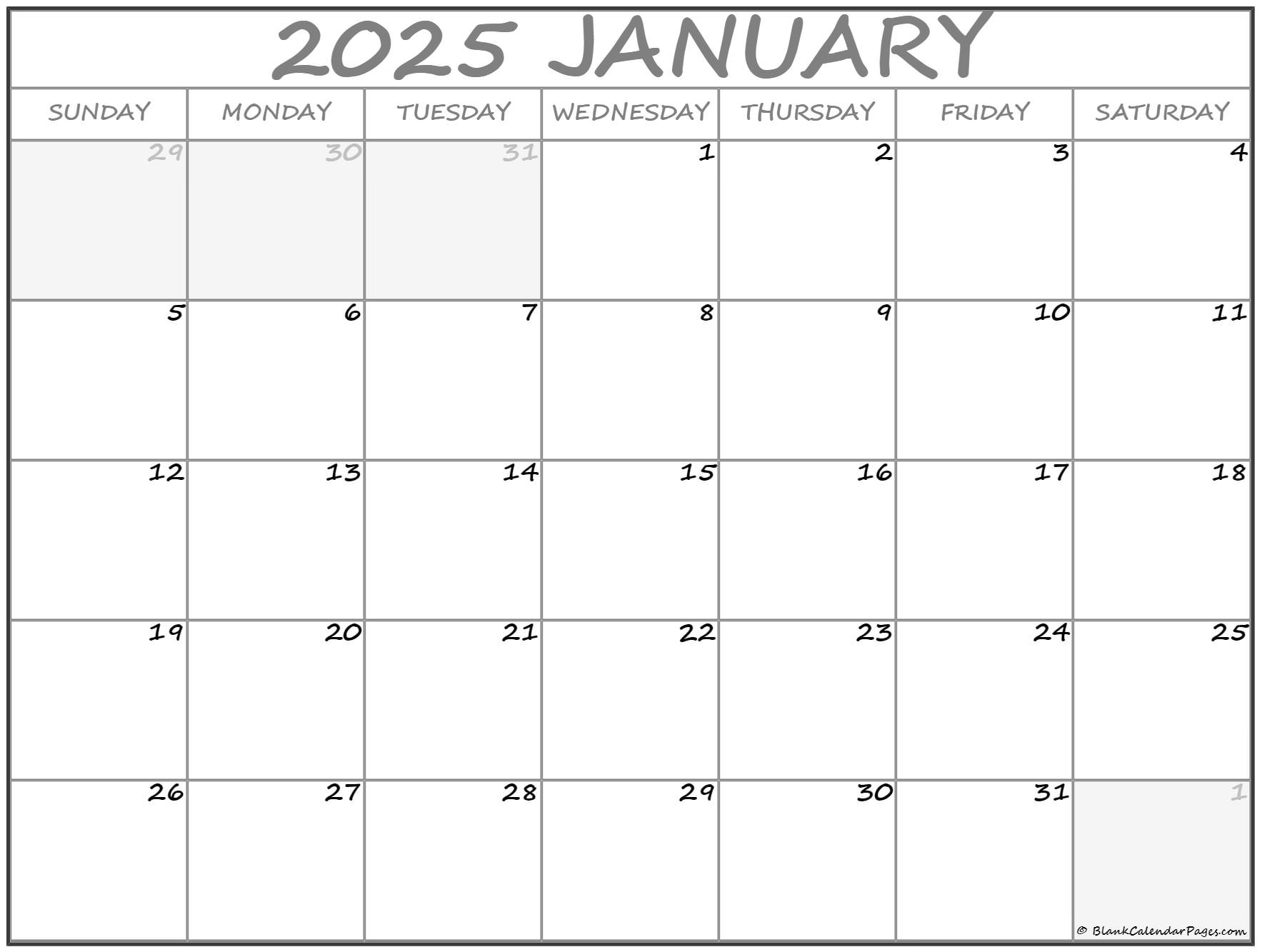
Closure
Thus, we hope this article has provided valuable insights into Navigating the New Year: A Comprehensive Guide to the January 2025 Calendar. We hope you find this article informative and beneficial. See you in our next article!